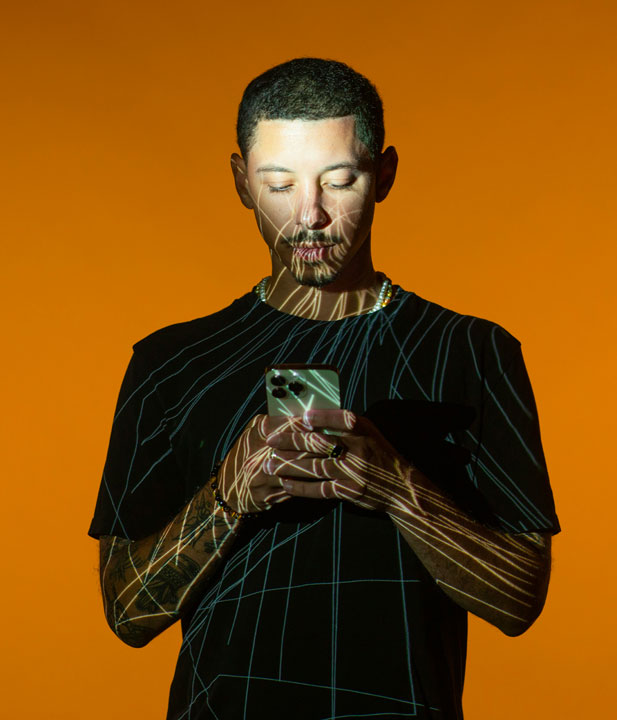Last week, I watched a junior designer build a complete brand system in three hours using AI tools. The logos were sharp, the typography worked, the color palette made sense. And yet, something felt fundamentally off. Not because the work was bad—it was perfectly competent—but because it revealed how radically the creative process has shifted beneath our feet.
The traditional agency model is dissolving. Not dying—dissolving, like sugar in hot coffee, becoming something entirely different. What emerges from this transformation will determine how brands get built for the next decade.
Here's what I'm seeing: the agencies that thrive won't be the ones with the biggest teams or the fanciest offices. They'll be the ones who understand that agency innovation trends aren't just about adopting new tools—they're about reimagining the entire creative operating system.
"The best agencies stopped selling time years ago. Now they're selling transformation,".
The Shift from Production to Direction
Ten years ago, agencies sold craft. Five years ago, they sold strategy. Today, the most innovative studios are selling something harder to define: creative judgment at machine speed. When AI can generate a thousand logo variations in minutes, the value isn't in making more options—it's in knowing which one captures the ineffable thing we call brand soul.
Take Pentagram's recent work with Mastercard. The genius wasn't in drawing circles—it was in recognizing that removing the wordmark entirely would make the brand more powerful. That's the kind of decision AI can't make, because it requires understanding cultural context, business strategy, and human psychology at a level that transcends data.
The agencies adapting to current agency innovation trends are restructuring around this reality. They're smaller, faster, and obsessed with creative direction over production volume. One studio I know cut their team from forty to twelve and tripled their revenue. They stopped hiring production artists and started hiring philosophers, cultural anthropologists, and systems thinkers.
Hybrid Intelligence as Competitive Advantage
The smartest agencies aren't choosing between human creativity and machine efficiency—they're building hybrid workflows that amplify both. A strategist sketches a concept, feeds it through Midjourney for rapid visualization, refines it in Figma, tests it with synthetic user research, then brings human judgment back to interpret the results.
This isn't about replacing people. It's about giving creative minds superhuman capabilities. When a designer can explore a hundred directions in an afternoon, the conversation shifts from "what can we make?" to "what should we make?" That's a fundamentally different value proposition.
The agencies that survive won't be the ones that resist AI or embrace it blindly—they'll be the ones that use it to become more human, not less.
Studios like Metabrand explore how identity evolves at this intersection of design and technology, recognizing that brand-building in 2024 requires fluency in both computational and cultural languages.
The Death of the Brief, the Birth of the Build
Traditional agency innovation trends focused on perfecting the pitch. Tomorrow's agencies are eliminating it entirely. Instead of spending weeks on speculative presentations, they're building functional prototypes in days. Not mockups—working systems that clients can touch, test, and iterate on in real-time.
I recently watched a boutique studio land a major rebrand by showing up to the first meeting with a fully functional design system. Not a deck about a design system—the actual thing, built overnight using AI-assisted tools and systematic thinking. The conversation immediately jumped three levels deeper because everyone could see and feel the possibilities.
This shift demands different talent. Agencies need people who think in systems, not just aesthetics. Who understand business models, not just brand models. Who can code a little, write a lot, and synthesize complex problems into elegant solutions.
The New Agency Operating System
The agency of the future looks less like Mad Men and more like a product studio. Small core teams. Fluid project structures. Tools that talk to each other. Clients who are collaborators, not approval gates.
These new agency innovation trends aren't just changing how agencies work—they're changing what agencies are. The boundary between consultancy, studio, and software company is blurring. Some agencies are building their own tools. Others are licensing their methodologies. Many are taking equity instead of fees, betting on long-term value over short-term billing.
The agencies that dominate the next decade won't be the ones with the most awards on their shelves. They'll be the ones who figured out how to make creativity scalable without making it soulless. They'll move at the speed of software while maintaining the depth of craft. They'll be small enough to be nimble and sophisticated enough to handle complexity.
The transformation is already happening. The only question is whether your agency is dissolving into something new, or simply dissolving.









